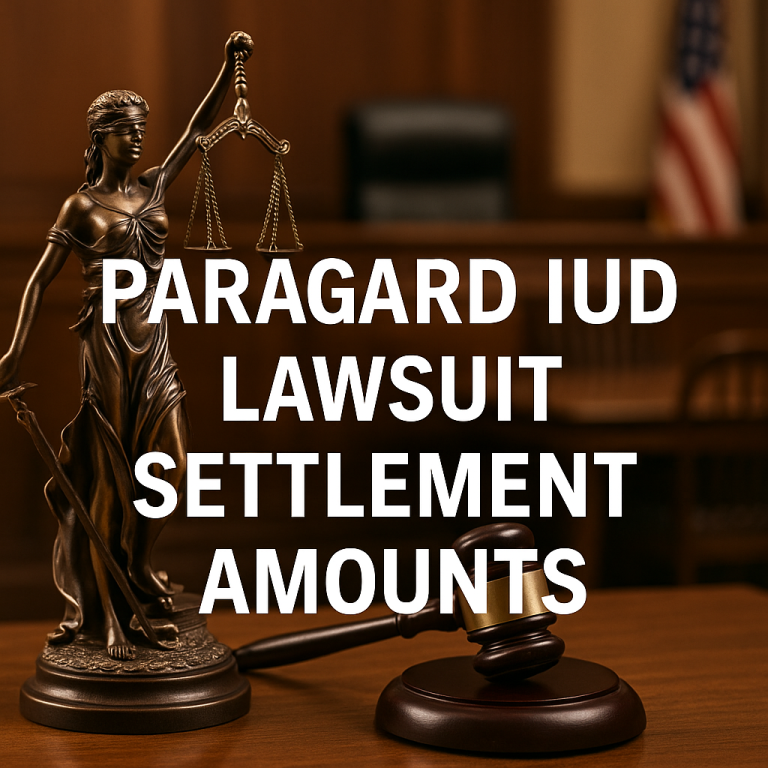The Kennedy Funding ripoff report is raising serious concerns among borrowers and regulators. This private lender promises fast, flexible loans. But many borrowers claim otherwise. Lawsuits, legal reviews, and borrower complaints paint a darker picture. Allegations include fraud, hidden fees, and abrupt loan denials. Borrowers say they paid large fees but received no funding. These issues now face public and legal scrutiny. This article reveals what’s really happening behind the scenes and how borrowers can protect themselves.
What Makes Kennedy Funding Controversial?
Kennedy Funding promotes itself as a savior for high-risk borrowers. It promises quick loan approvals and minimal paperwork. This appeals to those denied by traditional banks. But many say the reality is far different. The lender’s business practices have sparked major legal and ethical concerns.
Borrowers report upfront fees as high as $50,000. In many cases, loans were delayed or canceled after payment. Clients describe sudden communication drop-offs, repeated excuses, and loan conditions that shift without notice. These issues raise serious questions about transparency and ethics.
The company’s operations often blur the line between aggressive business and exploitative conduct. The gap between what’s promised and what’s delivered continues to widen. Borrowers are left in financial limbo.
How Does Kennedy Funding Make Money?
KFI focuses on commercial bridge loans. These loans target borrowers with poor credit or unusual properties. KFI claims to be flexible and fast. But borrowers say this flexibility comes with hidden risks.
The company charges large upfront fees—often non-refundable. These include due diligence, application, and legal review costs. Many borrowers report no loan was ever approved. Some believe these fees are a primary revenue stream.
Borrowers also say the company requests additional documents repeatedly. Each step delays approval. Loan conditions change mid-process, increasing borrower frustration. This raises concerns about a deliberate stall tactic designed to collect fees without lending.
Key Lawsuits That Reveal the Pattern
Ruggers Acquisition vs. Kennedy Funding (2007)
KFI promised an $18 million loan. The borrower submitted all documents and paid fees. Later, KFI cited appraisal concerns and canceled the deal. The borrower accused the lender of manipulating contract language to escape liability. The case revealed how vague clauses enabled KFI to exit without refunding fees.
Construcciones Haus Sociedad vs. Kennedy Funding (2006)
A Mexican developer applied for a $3–8 million loan. KFI collected fees and documents but never disbursed funds. The borrower alleged intentional deception. The cross-border nature of the deal made legal action difficult. Jurisdictional issues prevented proper enforcement.
Shelton vs. Kennedy Funding (2010)
Virgil Shelton sued KFI for breach of contract and misrepresentation. A jury awarded him $675,000. Although fraud charges were dropped, court documents showed misleading conduct. The case highlighted the importance of binding contracts and the risks of unclear language.
These lawsuits reveal patterns in borrower experiences. Courts repeatedly criticized KFI’s contract terms and fee policies.
What Are Borrowers Saying?
Borrower complaints share common themes. These go beyond frustration. They describe consistent operational issues.
- Huge Upfront Fees: Some borrowers paid over $50,000 before seeing any results.
- Changed Terms: Promised terms were revised without explanation. Deadlines and conditions shifted midway.
- Delayed Responses: Communication often stopped after payments. Borrowers had to chase updates.
- Cross-Border Issues: International borrowers faced contracts that lacked enforceability. Some lost money with no legal recourse.
Borrowers also note emotional distress and business setbacks. Many projects collapsed due to failed financing. The impact extended far beyond financial loss.
What Do Courts Say About Kennedy Funding?
Courts across different states reviewed Kennedy Funding’s conduct. Their concerns reflect deeper legal issues. Judges often pointed to ambiguity in contracts. Many raised ethical flags about shifting loan terms and delayed approvals.
In the Shelton case, the court emphasized lack of clarity and transparency. In Ruggers, the judge criticized appraisal-based delays. These decisions reflect judicial discomfort with KFI’s operational model. Even when the company avoided full liability, courts acknowledged unfair practices.
Repeated legal observations show this is not an isolated problem. It signals a need for greater oversight and borrower education.
How These Issues Damaged Kennedy Funding’s Reputation
Kennedy Funding’s public image has suffered due to ongoing complaints and lawsuits. In lending, trust is essential. Losing it affects every part of the business.
- Borrower Trust Declines: More borrowers post warnings online. Many say they would never work with KFI again.
- Watchdog Attention Grows: Regulators watch the company’s activities more closely.
- Negative Press Mounts: Media reports highlight legal battles and borrower losses.
- Client Base Shrinks: Fewer borrowers approach KFI, especially from high-credit sectors.
The long-term impact includes reduced revenue, tighter regulatory scrutiny, and growing public skepticism.
Kennedy Funding’s Official Response
Kennedy Funding continues to defend its business practices. The company says its fees cover real expenses. These include appraisals, legal assessments, and underwriting reviews.
KFI states that not all loan applications succeed. Some fail due to poor documentation or risky projects. It argues that every loan offer includes clear terms. Public statements blame misunderstandings for client dissatisfaction.
KFI has launched PR efforts. The website now features more success stories. Some lawsuits ended in private settlements. The company remains active, but concerns persist.
Borrowers demand more transparency. Critics say the company must reform its approach, not just its marketing.
Overlooked Information About Kennedy Funding
Several critical patterns emerge when examining the full body of legal records and borrower accounts.
- Non-Refundable Fee Structures: Contracts consistently make fees non-refundable. This limits borrower options if deals collapse.
- Evasive Loan Processing: Loan status often remains unclear. Multiple borrowers reported stalling tactics disguised as compliance reviews.
- Document Retention: KFI collects extensive paperwork. But some borrowers say these files were later used to justify delays.
- Jurisdictional Barriers: International borrowers suffer more due to enforcement gaps. U.S. laws do not fully protect them.
- Lack of Oversight: Few regulatory bodies actively monitor private bridge lenders. This legal vacuum enables repeated abuse.
These insights offer a deeper view of how KFI’s strategy functions. They help potential borrowers assess risks more clearly.
Allegations Against Kennedy Funding
This section outlines the most troubling allegations raised by borrowers, legal filings, and court rulings. These claims highlight a pattern of behavior that has led to significant legal and financial consequences.
High and Non-Refundable Upfront Fees
Borrowers consistently report being required to pay large sums before receiving any formal loan approval. These upfront fees, sometimes as high as $50,000, are rarely refunded—even when loans fall through. The contracts often include language that makes these fees non-negotiable.
Shifting Loan Terms
Many borrowers say the loan terms changed after fees were collected. New conditions, tighter deadlines, or unexpected requirements emerged midway. These changes often made the loans inaccessible or impractical, forcing borrowers to walk away after investing time and money.
Poor Communication and Delayed Responses
Communication reportedly declined once fees were received. Borrowers had to make repeated attempts to reach their loan officers. Updates became vague or nonexistent, leaving clients uncertain about their loan status.
Misleading Contract Language
Several lawsuits reveal contract terms that favored Kennedy Funding heavily. Ambiguous phrases allowed the company to delay or cancel loans without repercussions. Borrowers said they didn’t fully understand the terms until after disputes began.
Cross-Border Legal Gaps
International clients, particularly those outside the United States, were vulnerable due to limited legal protections. In multiple cases, foreign borrowers said they had no clear path to recover losses. Contracts did not hold up well across jurisdictions.
These allegations, backed by legal outcomes and borrower testimony, form the core of Kennedy Funding’s ongoing controversy.
The Importance of Due Diligence in Business Transactions
Due diligence is a critical step before entering any financial agreement, especially with private lenders. It protects borrowers from fraud, hidden risks, and financial ruin. In the case of Kennedy Funding, failure to perform due diligence has cost clients large sums and valuable time.
Due diligence includes verifying legal records, confirming business credentials, and consulting legal professionals. Borrowers must read all contract terms, ask detailed questions, and ensure there are no ambiguous clauses.
It also involves comparing lenders and understanding market norms. Upfront fees, for example, should be clearly explained and ideally deducted from loan disbursements—not requested in advance. In today’s lending environment, transparency is non-negotiable. Borrowers must know who they’re dealing with. Research, documentation, and legal advice form the best defense against predatory practices.
What You Should Do Before Trusting a Private Lender
If you’re considering a loan from any private lender, take steps to protect yourself:
- Search Legal Records: Look for lawsuits and public complaints.
- Avoid Paying Upfront: Insist on fee deductions from disbursed funds.
- Use a Lawyer: Let a professional review every page.
- Document Everything: Keep all emails, agreements, and payment receipts.
- Ask for Timelines: Request deadlines for each step in writing.
These actions reduce your exposure to financial risk. They give you power during negotiations.
Final Verdict: Is Kennedy Funding a Ripoff?
Kennedy Funding has a long list of unhappy clients and legal critics. The evidence points to a risky business model. It includes high upfront fees, vague terms, and inconsistent follow-through. Courts and borrowers repeatedly highlight these problems.
KFI still operates. But borrowers must use extreme caution. The potential for financial harm is high. Due diligence is not optional—it’s essential.
If you’re unsure, walk away. Other funding options exist. Fair lenders offer transparency and accountability. Protect your business, your money, and your peace of mind.
FAQs About Kennedy Funding Ripoff Report
Is Kennedy Funding still operating? Yes. KFI continues offering loans across the U.S. and internationally.
Why do borrowers call Kennedy Funding a scam? They claim the company takes large fees but fails to fund promised loans.
Can I get a refund from Kennedy Funding? In most cases, no. The contracts make fees non-refundable.
How can I verify a private lender? Search public court records. Check watchdog sites like BBB and Trustpilot.
What if I suspect fraud? Collect all documentation. Report to financial authorities and contact a fraud attorney.
Are international borrowers at greater risk? Yes. They face legal limits that reduce options for recovery.
What legal protections do I have? Use strong contracts. Always involve a qualified lawyer.
Is Kennedy Funding legally liable for damages? Courts have ruled against KFI in several cases. But outcomes vary.
How can I avoid lending scams? Avoid upfront fees. Demand clear contracts. Work with verified professionals.
Should I trust Kennedy Funding? Based on lawsuits and borrower reports, extreme caution is strongly advised.
Ayesha Awais is a content writer for JudicialNexus.com, covering accident reports, injury-related news, lawsuits, and public safety updates. All content is informational in nature and based on publicly available sources.




